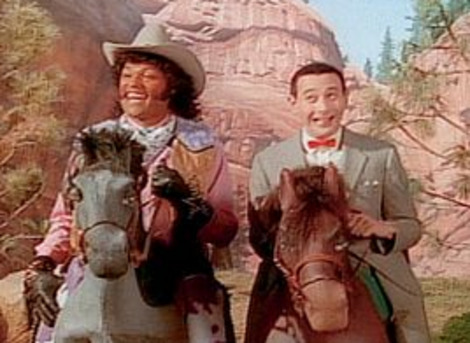« Reply #214 on: September 29, 2017, 10:58:36 pm »
On how Sufjan Stevens became involved: "I thought a voice that was external, of narration, could be great. I thought, 'why don't we have a chronicler, who opens and closes the movie with a thought of introduction and epilogue?' I thought it would be cool if we had not an actor, but a musician. And I love Sufjan, so I approached him for that. And he said, 'forget about it, it's never gonna happen.' So I said, 'OK, what about a song that can be, in a way, playing like that? A song of a musician of today telling the story of someone back in the '80s?' And then he really surprised us, because a couple of months later, when we were shooting, I got an email from his management. And Sufjan not only made a song, but he made two. And also, he made an adaptation for the piano of his beautiful 'Futile Devices.'"
Sufjan Stevens’ latest album, Carrie & Lowell, was a beautifully simplistic work based on his mother’s death and his reeling emotions of anger, abandonment, loss and love. It will be very interesting to see Stevens tackling a film score, as most of his work is so broad in scope that it lends itself to a cinematic format. So everything should translate well, but it’s exciting to see him fully embrace the format.
To accompany the classical music is a trio songs from the aforementioned Sufjan Stevens, two of them original. Along with employing a new ethereal piano arrangement of “Futile Devices” in a moment of longing, the original songs have the feel of tracks off Carrie & Lowell, albeit with more of a wistful elation. For one of these songs, Guadagnino utilizes one of his few overt directorial flourishes: the effect of a film burn as a lonely Elio contemplates furthering their relationship, then later the visualization of a camera negative when he reflects on the time they have had. Both are fleeting flourishes, appearing only for a few seconds, but indelibly convey the passion inside Elio’s soul.
[youtube=850,475]http://www.youtube.com/watch?v=wVZUBMUekck[/youtube]
Sufjan Stevens "John My Beloved" (Official Audio)
From the album CARRIE & LOWELLAsthmatic Kitty Records
Published on Mar 30, 2015
John My Beloved Are we to speak, first day of the week
Stumbling words at the bar
Beauty blue eyes, my order of fries
Long Island kindness and wine
Beloved of John, I get it all wrong
I read you for some kind of poem
Covered in lines, the fossils I find
Have they no life of their own?
So can we pretend sweetly
Before the mystery ends?
I am a man with a heart that offends
With its lonely and greedy demands
There’s only a shadow of me; in a matter of speaking I'm dead
Such a waste, your beautiful face
Stumbling carpet arise
Go follow your gem, your white feathered friend
Icarus, point to the sun
If history speaks of two baby teeth
I’m painting the hills blue and red
They said beware, Lord hear my prayer
I’ve wasted my throes on your head
So can we be friends sweetly
Before the mystery ends?
I love you more than the world can contain
In its lonely and ramshackle head
There’s only a shadow of me; in a matter of speaking I'm dead
I’m holding my breath
My tongue on your chest
What can be said of my heart?
If history speaks, the kiss on my cheek
Where there remains but a mark
Beloved my John, so I’ll carry on
Counting my cards down to one
And when I am dead, come visit my bed
My fossil is bright in the sun
So can we contend, peacefully
Before my history ends?
Jesus I need you, be near me, come shield me
From fossils that fall on my head
There’s only a shadow of me; in a matter of speaking I'm dead
« Last Edit: September 30, 2017, 01:28:03 pm by Aloysius J. Gleek »

Logged
"Tu doives entendre je t'aime."
(and you know who I am...)

Cowboy Curtis (Laurence Fishburne)
and Pee-wee in the 1990 episode
"Camping Out"